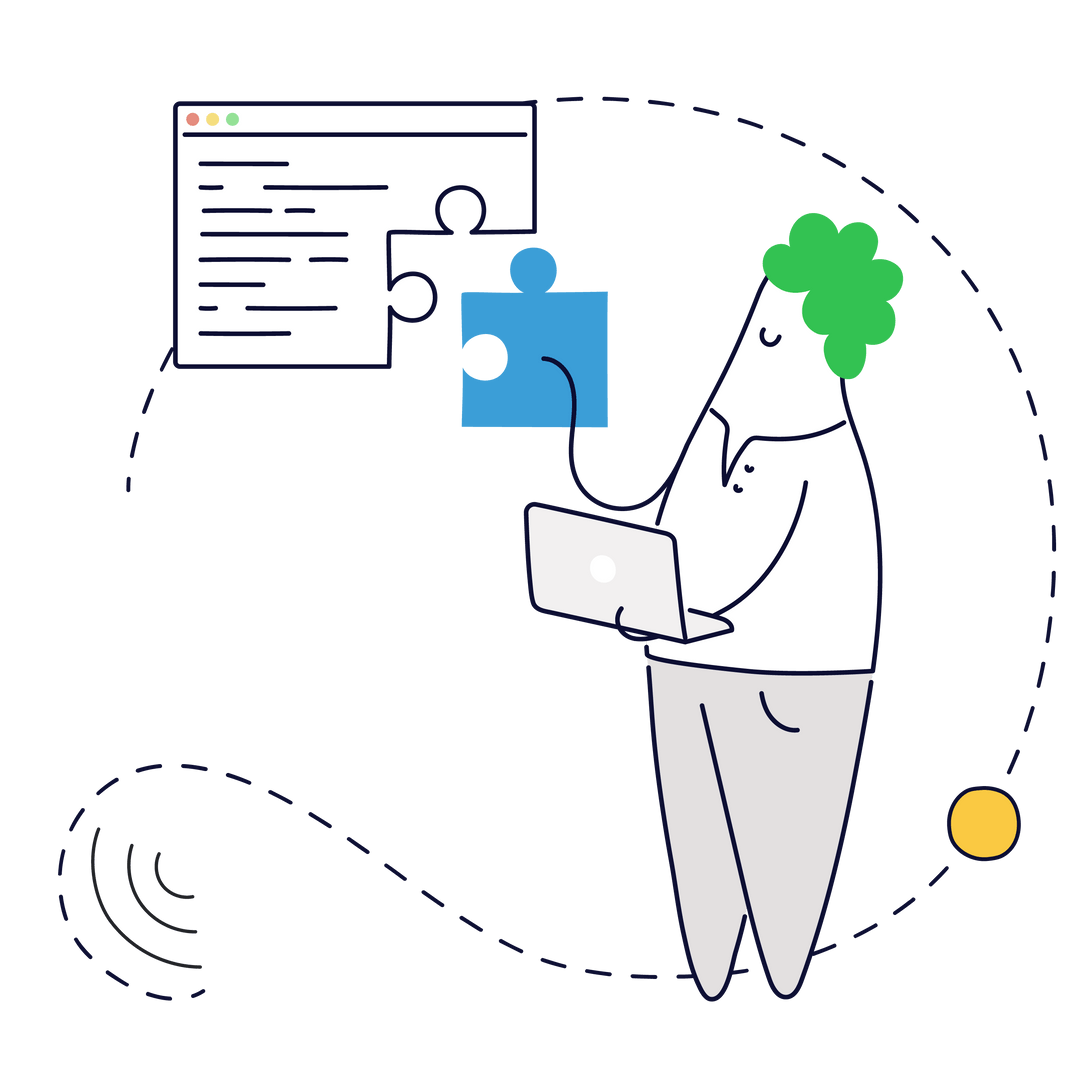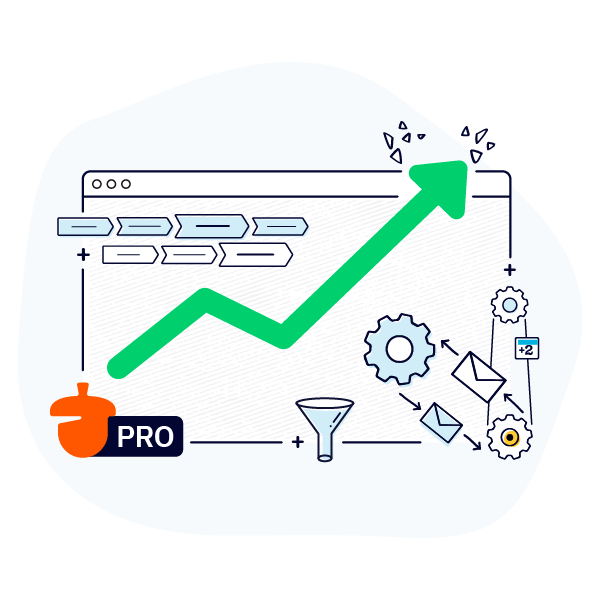
A SaaS-specific CRM is not a necessity for most SaaS companies. A general-purpose CRM is often more flexible and can be customized to track the same important metrics.
Customer relationship management (CRM) software is an essential tool for streamlining your sales process and closing more deals with less hassle and guesswork.
As a SaaS business owner, you understand the importance of good CRM software, and you’re probably already shopping around for a CRM for your business.
In this article, we’ll cover the definitions and advantages of SaaS-specific CRMs and general-purpose ones to help you choose the best software for the job.
A SaaS-specific CRM is created with SaaS businesses in mind. It helps these businesses attract and manage their sales and leads in accordance with the SaaS business model.
These CRMs often have features that are specifically helpful to sales teams working in the SaaS industry. For example, a SaaS-specific CRM may have extra security features installed to prevent cyberattacks, which software companies that deal with user data often face.
Considering a SaaS CRM to add to your tech stack? The benefits of choosing an industry-specific CRM over a general-purpose one include:
Let’s look at each benefit in more detail.
Since industry-specific CRMs were made with their industries in mind, it should come as no surprise that SaaS teams may find SaaS-specific CRMs easier to understand and implement than general-purpose ones.
The interface may make your team feel more comfortable by using industry-specific language or practices. If teams feel at home in the system, there is less likely to be pushback to adopting and implementing the CRM.
While a SaaS-specific CRM has a smaller suite of features for users, these features are more likely to be what a SaaS sales team needs. The features would benefit users in the SaaS industry, helping them to solve challenges unique to SaaS sales, such as nurturing free-plan customers into paying for a premium subscription.
It should be noted that a general-purpose CRM likely has all the features a SaaS-specific one does, plus more features to cater to a broad customer base. Thus, it would require a bit more time to customize the features to use for your business.
However, using a general-purpose CRM shouldn’t feel foreign to a SaaS business as long as it includes the features and tools they need.
Choose the model that best fits your business and see how we help teams like yours close more deals.

Factoring in the SaaS-friendly interface and tailored suite of features, it makes sense that setup time for a SaaS-specific CRM would be faster than that with a general-purpose CRM.
This is not always the case, though, as some general-purpose CRMs were built with the goal of fast setup and implementation in mind and can rival their industry-specific counterparts in setup efficiency.
General-purpose CRMs are built for a general audience: businesses of various sizes and industries. They can be customized to work for all types of business models and have a wide range of features that customers would appreciate.

What could a general-purpose CRM offer your SaaS business that an industry-specific one can’t? When you choose to use a general-purpose CRM over a SaaS-specific one, you can enjoy benefits such as:
Let’s examine each of these advantages of general CRMs.
Since general-purpose CRMs must cater to a wide range of industries, they are more likely to offer a wider range of integration options than a SaaS-specific CRM would. An industry-specific CRM may only allow a limited number of integrations.
A general-purpose CRM might be a better choice for companies that already have an established and favored tech stack.
Explore our current integrations and upcoming tools that will help you get even more out of Nutshell.
And get the inside scoop on Nutshell’s security policies here:

General-purpose CRMs have a large customer base, which provides more feedback and incentives to make their interfaces as easy to use as possible. This is great news for companies in all industries.
Not only will a general-purpose CRM have a simple interface, but it will also house a lot of different features, with the ability to customize your experience to fit your business goals and sales processes.
An industry-specific CRM may be cheaper than a general-purpose one, but its pricing is often more rigid. With a general-purpose CRM, you have the flexibility to choose a plan within your budget and add features as you see fit.
Nutshell, for example, offers flexible plans that don’t skimp on features you need. Plus, you get the benefits of thousands of integrations to connect and native add-ons to enhance your sales process with email marketing, landing pages, or scheduling software, among others.
So now that you’ve seen the difference between a SaaS-specific and a general-purpose–and the advantages of each–it should be a clearer choice about which one to choose for your business.
Not sure yet? Well, if you’d prefer a SaaS-tailored interface, a faster setup time, and don’t mind limited integrations and rigid pricing, then a SaaS-specific CRM may be the right option for you.
Otherwise, if you have a preferred tech stack that could benefit from CRM integration capabilities, want a flexible pricing plan, and don’t mind a slightly more involved setup process, a general-purpose CRM is the one you want.
If you’re looking for a robust, all-in-one CRM solution for your SaaS business, why not try Nutshell?
Our CRM is specifically designed to make adoption and implementation as simple as possible because no matter whether it’s general or industry-specific, the best CRM is one you’ll actually use.
Enjoy customizable sales pipelines, sales automation, and advanced reporting and analytics when you try Nutshell, free for 14 days, no credit card required.
SaaS companies need contact and pipeline management, sales automation, customizable reporting, email integration, and mobile access. Look for tools that track subscription metrics like MRR and churn, support multiple sales stages, and integrate with your existing tech stack. Nutshell offers all these features in one flexible platform.
Setup time varies by CRM complexity. General-purpose CRMs like Nutshell typically take 2-4 weeks for small teams with straightforward processes. This includes data migration, customization, and training. SaaS-specific CRMs may launch faster initially but often require more customization later as your needs evolve.
Yes. General-purpose CRMs like Nutshell are built to scale with your business. You can add users, customize fields, create new pipelines, and integrate additional tools as needed without switching systems. This flexibility actually makes general-purpose CRMs better for growth than rigid, industry-specific alternatives.
Track monthly recurring revenue (MRR), customer acquisition cost (CAC), customer lifetime value (CLV), churn rate, and pipeline velocity. Your CRM should also monitor lead conversion rates, sales cycle length, and customer retention. Nutshell’s reporting tools make tracking these metrics straightforward with customizable dashboards.
Switching CRMs requires planning but isn’t overly difficult. Most transitions take 2-4 weeks and involve exporting data, mapping fields, testing integrations, and training your team. Nutshell’s support team helps with data migration and setup, making the switch smoother than managing a limited CRM long-term.

Join 30,000+ other sales and marketing professionals. Subscribe to our Sell to Win newsletter!